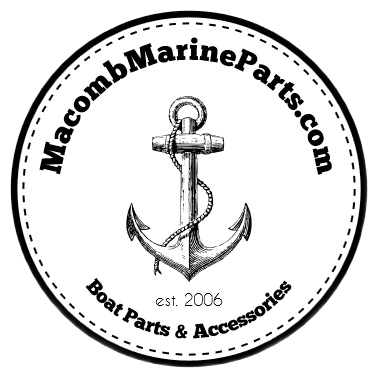
Crusader Marine Engine Parts
Keep Your Crusader Engine Running Strong with Genuine or OEM-Grade Parts from...
Free Ground Shipping to Continental US on
Piranha Propellers,
Propulsion & Performance Kits!

Keep Your Crusader Engine Running Strong with Genuine or OEM-Grade Parts from...
$0.00 USD
Minimum Order of $20 Required for Checkout


QuickSilver
In stock
Couldn't load pickup availability
Aluminum anode kit 8M0116589 is for use on Mercury Verado 350hp L6 outboards (serial No. 1B7 16557 and above). The kit includes all anodes and attaching hardware for the transom bracket and gearcase of the engine. These aluminum anodes are for fresh water or salt water use. The anodes are important in the prevention of corrosion of aluminum or stainless steel engine parts. Inspect anodes periodically for best protection and replace when seeing signs of corrosion or pitting. Never paint an anode. See your owner's manual or service manual for specific applications and replacement instructions.
For select Mercury Verado 350 hp L6 Verado outboards.
This aluminum anode kit is for fresh or saltwater use.
Kit includes anodes and hardware to replace all anodes on the transom bracket and gearcase.
The anodes serve to help prevent corrosion of aluminum or stainless steel engine parts.
Easy to install with hardware included with the anode and common tools.
Fits: L6 Verado 350HP (5.44 Torpedo Gearcase)
Fit the correct anode material for the waters in which your vessel operates
As a general rule, owners should fit anodes appropriate for the environment in which they most frequently berth, and the infomation below serves as a useful guide:
Some boats will alternate between salt and fresh water. Others are docked in marinas or behind tidal barriers. The water there is contained and likely to be brackish or nearly fresh. To avoid corrosion, boat owners must be aware of the consequences this may have on their vessels. Boat owners can then install the proper cathodic protection system.
Not all anodes are appropriate for every application. For example, after a period of time in fresh water, the surface of a zinc or aluminum anode will become covered with an off-white crust of oxide, essentially sealing the anode and preventing it from functioning even when restored to saltwater. Zinc anodes have a similar difficulty even in brackish circumstances, however aluminum will continue to perform well in river estuaries and other brackish water areas indefinitely. Because the anode is passive, the next most anodic component in the anode bonding system will begin to sacrifice itself, which might be disastrous.
As a result, it is critical to inspect zinc and aluminum anodes after any trips into fresh water. If necessary, clean or replace the anodes. Martyr recommends that if a vessel is in fresh water for more than two weeks, an alternative anode system suitable for fresh water situations be used.
Magnesium anodes have a much higher driving voltage than zinc or aluminum, making them ideal for use in fresh water. Magnesium anodes will become very active in salt water, where they will likely last only a few months. Protected surfaces can accumulate an off-white calcareous deposit that is difficult to remove.
Magnesium anodes are not intended for prolonged use in salt water, and if you plan to leave your boat in salt water for more than seven days (fourteen days in any given year), you should consider replacing the anodes.


Perfect replacement
Perfect match to the original Chris Craft blue. Competitive price and delivery was quick
Great Product, easy to install, work well
Obtaining magnesium anodes to install on the OMC Cobra (SX-C) sterndrive, for fresh water use. Received the anode within a week of ordering the part, which is not going to be installed until Spring.
Black Liquid Electrical Tape - 4 oz. | Star Brite 084104B
As described
Very Happy!! Just what I needed!!
Outdrive spent 4 months docked in salt water with no visible rust on the stainless steel braided hoses
Excellent
fit just fine
Product just as oem. Performs as it should. Order arrived quickly. Thank You!
Perfect fit.👍
Makes the repair a professionally done look.
You guys went above and beyond making sure we got the package
Fast shipping
Good quality parts fast and on time Great customer service
the company gave me help in properly measuring my shaft length answered all my questions the lower came a few days later and it was expertly packed. lower was just like expected brand new, i can not be more pleased good help answering question excellent parts and fast shipping. what more can you ask for
Perfect replacement
Perfect match to the original Chris Craft blue. Competitive price and delivery was quick
Great Product, easy to install, work well
Fill in the required details to get notified when the product is again in stock!
Thanks, We Will Notify You When Product Back In Stock!!
